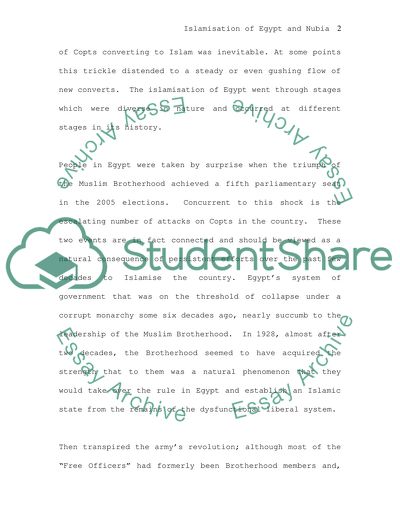Cite this document
(“Islamism in Nubia and Egypt Essay Example | Topics and Well Written Essays - 2000 words”, n.d.)
Retrieved from https://studentshare.org/religion-and-theology/1500923-islamism-in-nubia-and-egypt
Retrieved from https://studentshare.org/religion-and-theology/1500923-islamism-in-nubia-and-egypt
(Islamism in Nubia and Egypt Essay Example | Topics and Well Written Essays - 2000 Words)
https://studentshare.org/religion-and-theology/1500923-islamism-in-nubia-and-egypt.
https://studentshare.org/religion-and-theology/1500923-islamism-in-nubia-and-egypt.
“Islamism in Nubia and Egypt Essay Example | Topics and Well Written Essays - 2000 Words”, n.d. https://studentshare.org/religion-and-theology/1500923-islamism-in-nubia-and-egypt.


